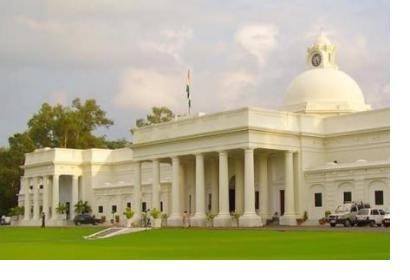
United Nations Office for Outer Space Affairs (UNOOSA), through its UN-SPIDER programme, and the Centre of Excellence in Disaster Mitigation and Management (CoEDMM), Indian Institute of Technology Roorkee, India.
In the last two decades, Asia has experienced numerous disasters caused by geologic and hydro-meteorological hazards impacting human settlements, both rural and urban. There is a paradigm shift in disaster management with a growing emphasis on disaster risk reduction (DRR). The gradual recognition of ecosystem-based DRR as an efficient risk reduction tool is turning the development focus on blue-green infrastructure for settlements. The United Nations Platform for Space-based Information for Disaster Management and Emergency Response (UN-SPIDER), a programme of the United Nations Office for Outer Space Affairs (UNOOSA), is ensuring that all countries and relevant international and regional organizations have access to and develop the capacity to use all types of space-based information to support the full disaster management cycle.
Due to unprecedented urbanization and inadequate understanding of the connection between ecosystems and human settlements, we are facing disasters such as the floods in Kerala State of India in 2018. These evoke a situation in 2011 when Bangkok had to deal with unprecedented floods resulting in over 800 deaths and economic loss of 46.5 billion. Manmade disasters like an incident of a dam collapse in Lao PDR in 2018 emphasize the resilient development. In order to strengthen any developmental process, risk sensitive planning is advisable. Eco-DRR is an emerging resilience concept which had been ignored for last few decades.
The training will be focusing on remotely sensed image analysis techniques for health monitoring of existing ecosystems and potential of space-based information in Eco-DRR that can be leveraged by Disaster Managers. Major learning points will be - Basics of DRR, fundamentals of Earth observation techniques, Geo-intelligence and crisis managements, Urban flood modelling, emergency management, Urban hazard assessments including urban heat island, heat waves, heat stress, Surface and canopy layer atmospheric change, Potential area identification for intervention through layered data integration, Scenario generation through strategic selection of feasible Blue-Green Infrastructure (BGI); and simulation of scenario to show effectiveness of BGI as an instrument for DRR. The participants can leverage potentials of BGI to improve risk and manage the sustainable development. Well managed and networked ecosystems will develop resilience in a changing climate.
The Centre of Excellence in Disaster Mitigation and Management (CoEDMM), Indian Institute of Technology Roorkee, India, is the first multidisciplinary and education centre on disaster mitigation and management in India. It was established on 27 March 2006 with the aim of conducting the educational programme, cutting edge research and training on disasters, vulnerability and their mitigation.
As a capacity-building approach to address the increasing risk environment, UN-SPIDER and CoEDMM will collaborate and work as a technical inter-institutional team to conduct a five-day training course for young scientists including research scholars from disaster related institutes / agencies and government agencies in India and Asia. The training will take place at CoEDMM, IIT Roorkee, Roorkee in India from 25 to 29 November 2019.
| Attachment | Taille |
|---|---|
| Booklet - UNOOSA/IIT Roorkee International Training Course (1.11 MB) | 1.11 MB |
